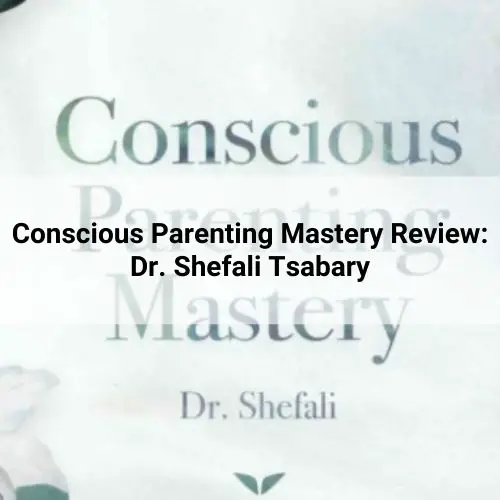The middle child in a family of three or more children is often said to be impacted by Middle Child Syndrome. It is thought that the behavior of their parents towards older and younger siblings leads to the middle child feeling excluded and misunderstood. The severity of middle child syndrome, or how left out, misunderstood or neglected a middle child feels, does obviously vary between families.
Read on to learn more about middle child syndrome, what it is, the characteristics that come along with it, and how to handle it if you’re a parent.
Table of Contents
What Is Middle Child Syndrome?
Middle child syndrome is when middle children feel excluded, ignored, or misunderstood, all because of their birth order. Many believe that being a middle child shapes your personality and relationship characteristics, and has quite an impact on who you turn out to be.
Alfred Adler, an Austrian psychiatrist, was one of the first to suggest that birth order affects personality traits, and that birth order could leave quite an impression on an individual’s life.
The belief is that your birth order will alter your habitual ways of dealing with different situations throughout life, such as friendship, work, and love.
Most families follow the same pattern with their children. The firstborn is usually more reliable and responsible and often comes across as socially dominant. This is usually due to parents being quite strict with routine and setting higher expectations for their firstborn.
The youngest child then usually is more uncomplicated and free-spirited. The by-the-book approach has worn off a bit by the time they are born, and they have more freedom. However, this could also lead to them being attention-seeking and more self-centered.
Right in the middle of this is the middle child. Most of the time, the middle child is not praised as much as the older sibling, or indulged as much as the youngest child. This leads to the middle child feeling neglected, misunderstood, and feeling left out of the family structure.
This feeling of not fitting into the family structure, or feeling neglected, is called middle child syndrome, and it is more obvious in some families than it is in others.
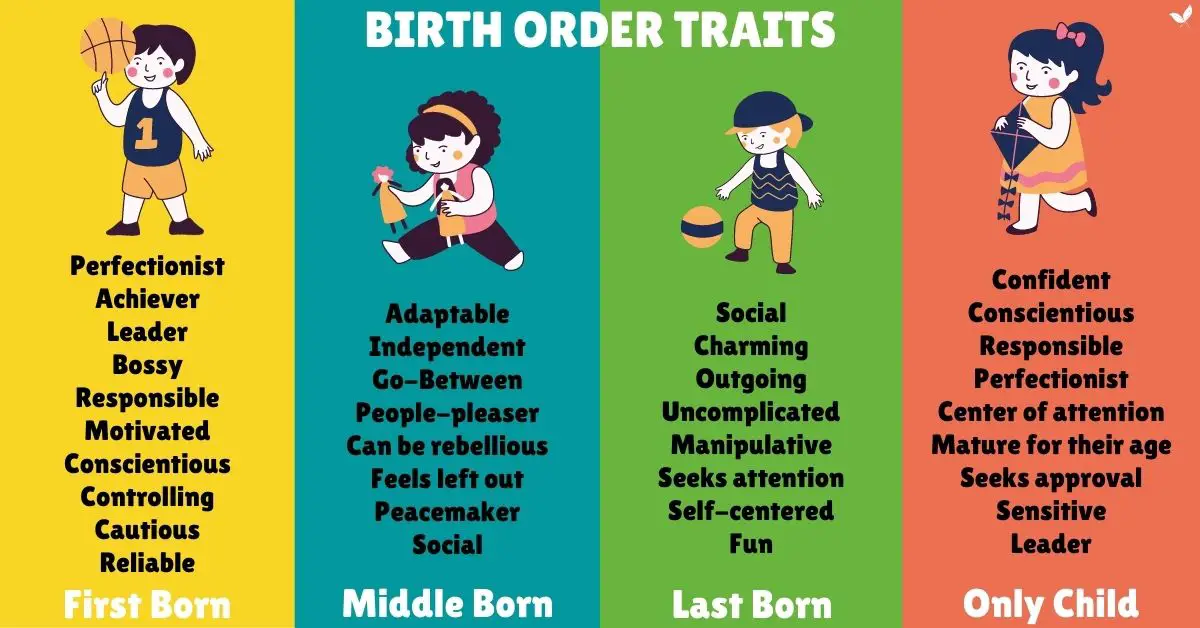
Is Middle Child Syndrome A Real Thing?
It is difficult to determine whether or not middle child syndrome is a real thing, but the fact remains that many middle children share the same experiences and feelings.
Dr. Alfred Adler’s theory is the closest we can come to proving the existence of middle child syndrome, believing that birth order has a significant effect on psychological development.
While one cannot say for sure whether or not middle child syndrome is a concrete phenomenon, and that all middle children experience the same issues, there are more than enough middle children who experience the same thing, to encourage the theory that birth order plays a part, and that middle child syndrome does come into play.
Every family has its unique dynamics, and many other factors go into determining a child’s personality traits and characteristics, but being the middle child does seem to affect this, and middle children are often left trying to find their place in their family.
Characteristics & Personality Traits Of Middle Children
Many things influence a person’s characteristics and personality traits, but there are some common threads that run through the characteristics of middle children, which are likely a result of middle child syndrome.
Middle children often feel like they are lost in their older sibling’s shadow. Falling between two other children, they might end up feeling frustrated and misunderstood. This could lead to them seeking attention in other ways, or looking to rebel.
Feeling overshadowed by their older sibling, and less coddled than their younger sibling, middle children tend to be even-tempered and keep to themselves within the family.
The extent of middle child syndrome does differ between families, and in extreme cases, the child might develop feelings of unworthiness, become unsocial and withdrawn, and even develop low self-esteem.
It is also fairly common for middle children to feel as though they are not their parents’ favourite child, and even if parents reassure their children that there are no favourites, this feeling often lingers.
Middle children tend to be mild-mannered and more agreeable, stemming from a need to compromise throughout their life, juggling between the older sibling and the younger one.
However, feeling as though they do not fit in within their own family structure, they could also look to keep a close group of friends, where they feel as though they have a place.
Middle children often have good social skills, valuing the relationships they form and being able to get along with many different personality types. Being a middle child sometimes comes with its benefits!

The Middle Child Stereotype
The stereotype of the middle child is often a rebellious one. Not able to find their place in the family, constantly feeling overshadowed by the older sibling, and pushed aside by the younger one, they try to draw attention to themselves in a different way.
A middle child might look for an identity they can hold on to, which helps them stand out. This could often present as misbehaviour, or later on, it could show up as purple-dyed hair or an obsession with a band. This gives them a feeling of having their own place and knowing where they might fit in.
This stereotype also extends to the middle child being a social butterfly, spending less time with their family, and instead of finding comfort from a group of friends and not at home.

How Parents Treat Middle Children
Most parents would not notice that they treat their children any differently. Parenting is tough, and most parents just try to do their best each day. However, you cannot always treat your children the same. The same techniques won’t work for all children, and you have to adapt your parenting for each child.
The middle child is often seen as reliable and responsible, and because of this, a parent might not coddle them as much as the other children. This would not be out of a lack of love or not offering up enough attention, but parents have a lot on their plate, and a child who can do things on their own is usually such a blessing.
For a middle child, this could seem like they are not getting enough attention, or that the parents favour their other siblings.
Parents need to parent each child differently. Even though they are siblings, each child is different and needs different care and attention from their parents.
How Parents Actually Should Treat Middle Children
It is so important for parents who have more than one kid to understand that each child has different needs, and to adapt to give each child the attention, care, guidance, and love that they require.
When it comes to middle children, there are some tips on how you can prevent them from feeling the effects of middle child syndrome, and to show them that they are a valued member of the family.
As a parent of a middle child, here are some things you can do:
Understand Middle Child Syndrome
While it is still debated as to whether middle child syndrome is a real thing or not, middle children do still seem to feel the same, and you should acknowledge that your child might feel left-out and misunderstood.
Understanding how a middle child might feel, and knowing the signs to look out for, could help you give your child the tools you need to help them overcome any of these feelings.
Pay Them Extra Attention
It can be hard to find time to spend with each child, but you need to try your best to do so. Your middle child will need some extra attention to make them feel loved and valued. This may take a little more work than it does with his or her siblings, but it will pay off.
When you disagree with something that your middle child says or does, do not dismiss it, rather let them make their point and take the time to hear them out. This makes them feel valued, and does a good job to increase their self-confidence.
Stay Patient
The middle child might act quite differently from their siblings, and you will need to stay patient if they start acting up. It might take quite a bit of effort to make them know that they are loved and valued, and they could push back.
Instead of becoming frustrated and angry, be patient and carry on with trying to make them feel appreciated and valued.
Make Them Feel Important
It will take a little more work to make your middle child feel important and valued, so try to give them responsibilities and choices of their own which will make them know they have their own say, and that their opinion is valued.
This could be small things, such as deciding on dinner to make, or what to do on weekends. The choices and responsibility can obviously mature as they grow older too.
Teach Them Self-Importance
You need to teach your middle child to stand up for themselves. They might tend to be a people pleaser and to be more agreeable than other children. This is because they have had to navigate between their older and younger sibling’s needs and wants.
Teach your middle child to not default to being submissive in situations, and that they should always stand up for themselves.
Encourage Their Talents
Make the effort to motivate and encourage your middle child to do well in whatever they try, but also take note of areas where they excel whether in arts, music or sports.
Give them the support and encouragement they need to pursue their talents, and always give them their own space to shine.
Find time to look for quality art materials on Amazon.
Show Them Respect
Your middle child should feel open to expressing their emotions, feelings, and ideas with the family. Give them the respect to allow them to express what they want freely, and actually listen to what they have to say.
Don’t Compare Your Children
One of the worst things you could do for a middle child is compare them to their siblings. Each child has their own strengths and abilities, and they should be celebrated for what makes them unique.
Comparing your children will only make them feel inadequate, and could even cause them to form a resentment for each other.

What Are The Effects Of Middle Child Syndrome?
The effects of middle child syndrome will depend on how severely the child might feel excluded from the family unit.
When a child does suffer from middle child syndrome, it could have a negative impact on their behaviour and characteristics.
They Could Have Low Self-Esteem
Feeling as though they are not valued, understood or that they are excluded from the family unit could lead to the child having low self-esteem. Their self-importance would be diminished, and they do not feel as though they are worthy of being listened to, or deserving of attention.
They Could Feel Unworthy
A middle child might feel unworthy of love. Feeling like they do not get enough love from their parents might make them feel as though they are not worth loving. This has nothing to do with them, but instead is a side-effect of middle child syndrome.
They Might Have Unsocial Behaviour
The feeling of being pushed to the side and overshadowed could cause the middle child to feel unsocial. They would feel nervous entering a social situation, fearing that the same might happen with their friends that happens at home, and the fear of rejection would become overwhelming.
They Might Seek Attention
When not given the attention they crave at home, they could act out to find this attention elsewhere. Every child deserves attention, and they will act out if they do not receive this attention.
For children, this could be becoming more demanding, throwing tantrums, and acting out to get you to notice them.
As a teenager, it could be rebelling in various ways, and trying different things to stand out.
They See Their Siblings As Rivals
The middle child might feel as though they have to compete with their siblings for your attention, and if you constantly compare siblings to each other, this could be made worse.
Eventually, the middle child might form feelings of jealousy and resentment towards their siblings, and see them as rivals in a competition for your love and attention.
Middle Child Syndrome In A Family Of Four Or More
Middle child syndrome does not only rear its head in families of three. Larger families or four or more children can still see the effects of middle child syndrome, although it does tend to be a little more complicated.
With families of four or five, or even more, there would be more than one middle child. For example, in a family of five, the fourth, third, and second child might all feel left out and misunderstood. However, it is likely that the fourth and second child might recover better from middle child syndrome, and the third child, who is right in the middle, might feel the effects more.
Once again, this isn’t an exact science, and the birth order theory is not always applicable, but chances are that the middle child, or middle children, will experience at least a few signs and emotional difficulties that come with being a middle child.

Middle Child Syndrome In Adults
In some cases, middle child syndrome can have a lasting effect, and adults can still suffer from some of the effects of being the middle child.
Most of the personality traits and characteristics experienced by middle children could extend to adulthood and could develop into similar traits which display in more mature situations.
As adults, middle children might feel co-dependent in relationships, depending on their partner for the attention they feel they did not have as a child.
They might also strive to be peace-makers in different environments, trying to keep everyone happy. This often leads to them compromising their own happiness to ensure that others are left satisfied.
If quite severe, they might also feel unworthy of being a partner, a best friend, or someone’s favourite person. They would have not felt like this in childhood, so it is a foreign feeling for them to deal with as an adult.
Middle Child Syndrome And Relationships
The relationships that middle children have later on in life could vary quite a bit. The middle child might be co-dependent on their partner, looking to receive the attention that they never had as a child.
Co-dependency can be unhealthy, and pursuing a relationship just to receive attention could lead to some problems.
There could also be problems of accepting love and attention, as they might not be used to being the centre of attention. At times, this could lead to pushing those away who love them, as they are just unable to see themselves as worthy of love and attention.
Either way, a middle child would be seeking love and attention and would need to be receptive to accepting it. This might be hard, trying to acknowledge they are worthy of love, but it is a hurdle they will need to overcome to be happy.
Middle Children Are Becoming Extinct
Middle child syndrome might not be as prevalent going forward as it was in past generations. The cost of living is only going up, and many families now cannot afford to have three or more children.
Most families are now stopping at two kids, and having a third is mostly saved for the wealthy, who are able to equally provide a good life for all of their children.
For decades, middle children formed a huge demographic, but soon they will be the smallest. As millennial families are on the rise, families are having fewer children.
While overpopulation is a concern, the loss of middle children will be felt. They are caring, ambitious, and strive to stand out. Some of the most notable and significant figures in history have been middle children. Some names include Nelson Mandela, Charles Darwin, and even Martin Luther King Jr.
As families become smaller, there will be fewer middle children, and it will be up to them to show the world just how incredible middle children can be.
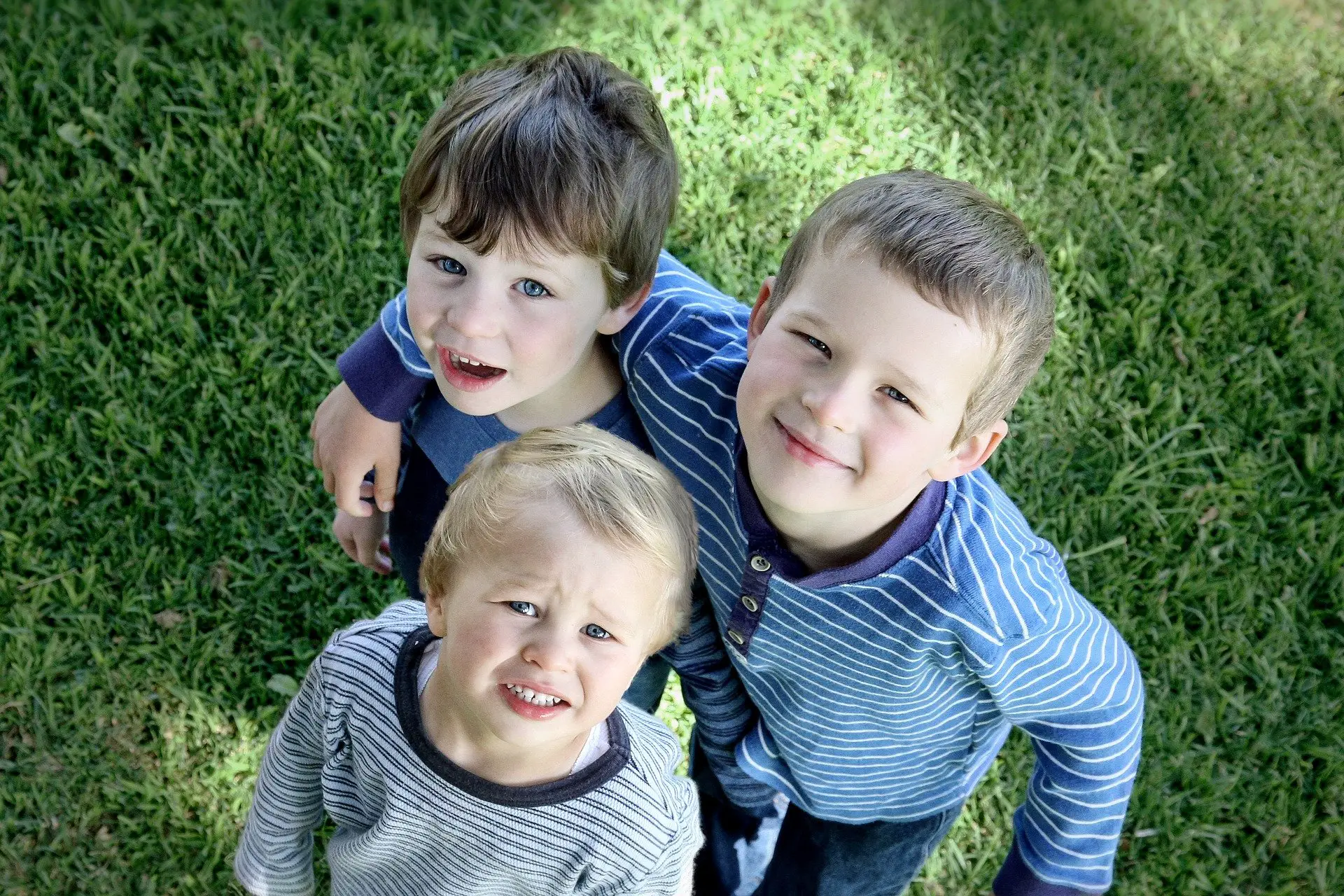
Positive Attributes Of Middle Children
Being a middle child isn’t all doom and gloom. There are some amazing takeaways and personality traits that one might have from being a middle child.
Negotiating Skills
Middle children tend to have incredible negotiating skills. They are stuck between two siblings who likely want different things, and they would have had to learn how to negotiate from a young age.
Not only will they be excellent negotiators, but they will be good listeners too, and be able to pick up on everyone’s needs and wants.
Risk-Taking
Sometimes, seeking attention can lead to some risk-taking. This gives the middle child the confidence to explore different things, learn new talents, and take risks. This is an invaluable skill to have throughout life.
Being Fair
The middle child would have had to consider their other siblings throughout childhood, and this could lead to them being fair and just. They know how it feels to be left out and misunderstood, and this leads to them treating others fairly and with compassion.
Flexibility
Navigating two or more siblings can be tough, and because of this, the middle child would grow up to be flexible. They would have the ability to adapt to change easily, which once again is a great skill to have.
Middle Child Memes
We sincerely hope these funny – and true – memes will help the middle children in the world to survive. A sense of humor will definitely help in laughing off those times of invisibility!

photo courtesy of whiskeyriversoap.com
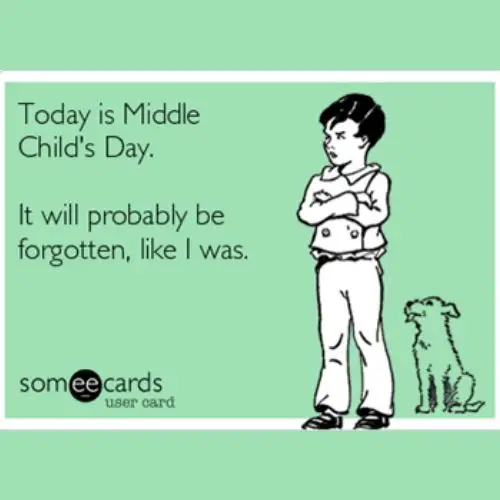
photo courtesy of someecards.com
Being The Middle Child
Being the middle child is notoriously difficult. You don’t hear of first child syndrome or last child syndrome, and for a good reason.
Middle children are often left to their own, and battle to find their place in their family. They might feel misunderstood and overlooked, and this is a sentiment shared by almost every middle child around the world.
While there is no concrete evidence that middle child syndrome does exist, most middle children feel the same. On the bright side, being a middle child also gives you some incredible tools to use throughout life. You will develop flexibility, negotiating skills, compassion, and be open to taking risks.
As a parent, you need to give your middle child some extra attention and love and be patient with them. They will grow up to be incredible adults if you nurture what it is that makes them unique, and let them know how special they really are.
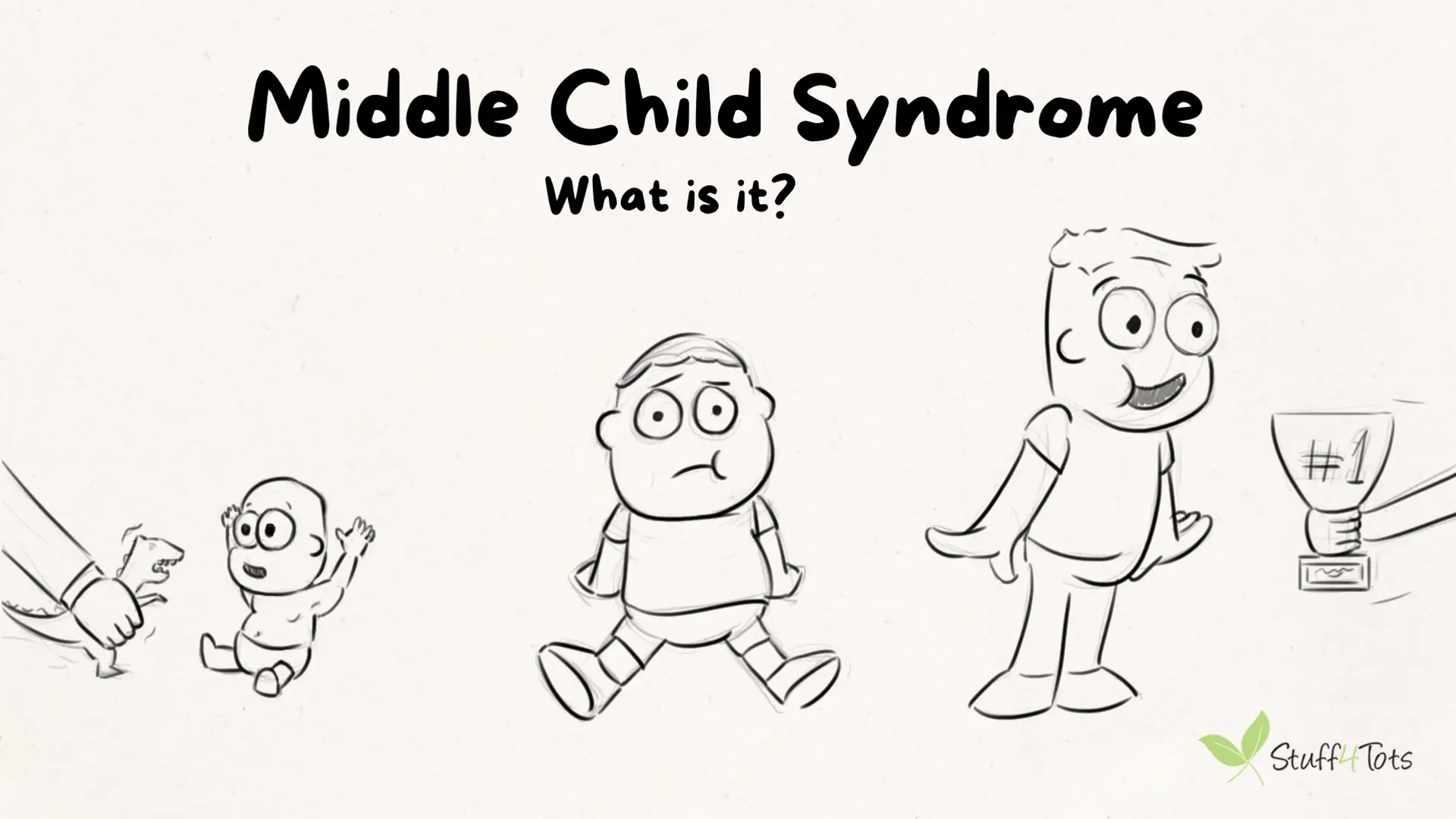
Related Articles:

Rebecca Brown
Rebecca Brown is a mom to two and writer on all things parenting. She has been focussed on content creation and article writing for the last four years, drawing on the inspiration she gets from her own experience as a mother, and the expansive research the job requires.
When not writing, you can find Rebecca outside with the kids, or hidden away enjoying a good cup of coffee!




